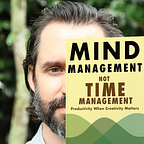Patience Therapy
One of the most valuable aspects of living in Colombia, for me, is what I like to call “patience therapy.” Living here is a constant lesson in patience.
Though I still lose my patience here often, I’ve gotten used to the pace of life, and the level of reliability. Surprisingly, I find it makes me happy.
For example, I’m currently trying to buy concert tickets. The man who works the ticket booth hasn’t been there during the hours posted on the website, and when it was open, the man working there told me the credit card system was broken. The nearby ATM was out of order, so I couldn’t buy the tickets that day. I tried to go by yesterday with some cash, during the hours the man told me the ticket booth was actually open (different hours than the ones posted on the website), but he wasn’t there.
The level of dysfunction I’m experiencing in buying concert tickets might happen only 5% of the time in the U.S. When it does happen, we go ballistic. “This is ridiculous!,” we might say. “I’m calling the manager!”
In the U.S., we’re used to getting exactly what we want, when we want it. Ironically, that makes us absolutely miserable. Or at least it does for me.
My theory is that there is a relationship between expectations and reality that causes malfunction to be extra aggravating in the U.S. If the ticket-buying process malfunctions only 5% of the time in the U.S., that’s exacerbated by the fact that we expect it to work fine 100% of the time.
After living in Colombia long enough, you learn to expect that your first attempt at doing pretty much anything will fail 75% of the time. In actuality, things malfunction maybe 20% of the time—they don’t have the proper change, the water in your building is turned off without warning, or Pink’s Just Give Me a Reason plays on repeat at the cafe for ninety minutes before anyone notices.
According to my theory, when your rate of expected function outpaces the rate of actual function, it makes you miserable. When your rate of expected function is outpaced by your rate of actual function, it makes you happy.
I think the mechanism by which this works is a matter of ego. When you expect something to work, it immediately makes you selfish. The world is there to serve you. Any malfunction is the fault of someone else. They fucked up.
When you expect some bumps on the road, you have to remind yourself that you have some responsibility in the matter. You’re going to have to persist. You may have to find a creative solution to your problem.
Also at work in this phenomenon is the fact that I’m operating in my second language, in a culture I’ll never fully understand.
There is no ego-crusher more effective than learning a new language. The person you’re talking to doesn’t understand the sounds that are coming out of your mouth? At first you’re annoyed, looking for someone to blame. But the next thing you realize is that it’s completely your fault. It’s no secret that you don’t know what you’re doing. There’s no denying you have to try harder.
This has a carry-over effect to when you return to your native land. Whenever I visit the U.S., I realize that communication is now easier for me, because operating day-to-day in my second language has destroyed the neural pathway to blaming others for miscommunications.
Whenever I have a misunderstanding when talking to a native English-speaker, a tiny celebration happens in my mind. I remind myself that I speak the same language as the other person, so working it out will be that much easier. However, then my theory about expectations it put to the test.
